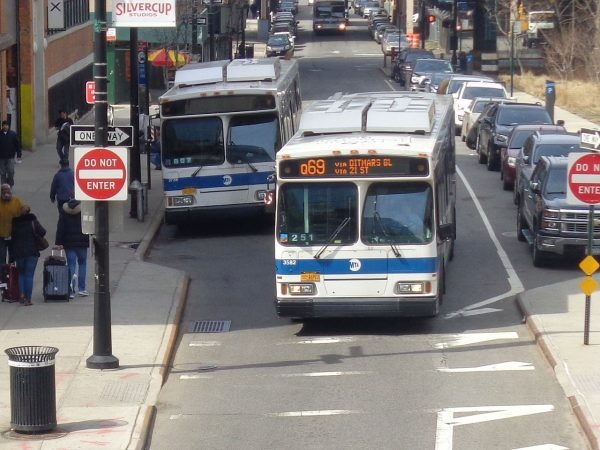
Wikimedia Commons
Jan. 23, 2020 By Kristen Torres
The Queens Delegation of the New York City Council penned a letter to MTA officials on Thursday voicing its opposition to the current draft of a plan that would overhaul the Queens bus network.
The delegation, which is made up of 15 local representatives, cited “serious, identifiable concerns” with the Queens Bus Network Redesign draft plan, which was initially released on Dec. 31.
The current draft—which reworked all bus routes throughout the borough—is still far from being finalized.
Nevertheless, the statement by the Council Members calls for a complete re-do of the current draft, advocating for a plan that invests more funds into the bus network within Queens, citing the borough’s many transportation deserts.
Craig Cipriano, acting president of the MTA bus company, had previously insisted it was too early in the process to discuss the budget for the new network. However, the elected officials said they had a meeting with MTA top brass and were told the plan is designed to work within the agency’s current budget.
Many of the Council Members said in the letter that the next version of the plan should focus on including additional funds to provide more bus routes, especially within the outer parts of the borough that lack subway access.
“Queens does not have the subway infrastructure of Manhattan, the Bronx or Brooklyn,” said Council Member Karen Koslowitz, who represents Forest Hills and Rego Park, in the letter. “Coupled with the fact that Queens has experienced a significant increase in population in recent decades, any plan that does not incorporate increases to service is destined for failure.”
Council Member Robert Holden echoed the sentiment, and said his constituents rely heavily on the bus network since residents in his district have access to just one subway line.
“The draft will cut back on localized service in every part of my district,” Holden said, who represents the Glendale, Maspeth, Middle Village and Ridgewood neighborhoods. “All of this will especially affect seniors, students, and people with disabilities.”
“The MTA cannot meet the needs of our constituents with this redesign if there is no further investment into the agency’s budget,” he added.
Many of the other 13 council members cited similar issues concerning a lack of service and longer projected wait times included in the plan (MTA officials have previously said the wait time estimates in the draft proposal were ballpark estimates).
Council Member Daniel Dromm said the draft plan is “bad for Queens residents” and does little to address transit issues in his district, while Council Member Jimmy Van Bramer called for a more equitable proposal.
“The plan does not take into account every community in Queens,” Van Bramer said. “It must be modified to provide better service for all.”
MTA officials plan to release a final draft plan later this year.






